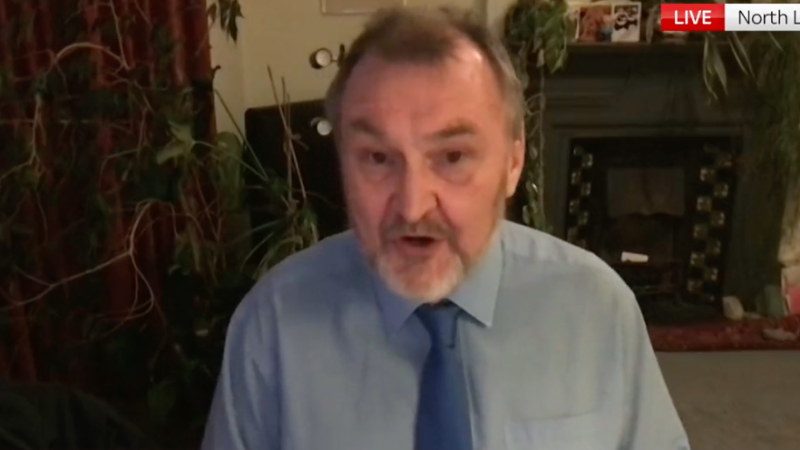
National Education Union joint general secretary Kevin Courtney has said Gillian Keegan “brought no proposals whatsoever” to a final set of talks aimed at averting upcoming strikes by teaching staff.
The NEU announced a series of strike days earlier this month, beginning with a national strike on Wednesday, as part of a dispute with the government over pay.
Courtney argued this morning that the Education Secretary had presented the union with “nothing whatsoever on pay, this year or next year, no suggestion of a non-consolidated lump sum, no suggestion of a pay rise” in final negotiations ahead of this week’s strike.
The union leader told Sky News that the NEU had presented Keegan with a “comprehensive set of data from bodies that aren’t unions, pointing to the relative decline in teacher pay since 2010 as a real problem for recruitment and retention”.
He said the NEU had highlighted a report from the National Foundation for Educational Research, which he said had concluded that the government’s pay proposals “will not solve the problem on teacher recruitment and retention”.
Courtney said he felt the government was “letting our children down”. He said the dispute was “about the disruption that’s happening every day in schools”, adding that the union wants the “strike to be effective in order to concentrate the government’s mind”.
Asked whether he felt that it was appropriate that teachers will not be sharing plans for the strike with headteachers, Courtney said that he thought it was “very appropriate”, telling viewers: “Most headteachers are supporting.
“Their unions are in the same position of being in dispute with the government about these questions, and they want the action to be successful. They want the pressure to be on government to change so that things get better for the children.”
In a statement released by the NEU following the talks with the Education Secretary, Courtney and joint NEU general secretary Mary Bousted argued that Keegan had “squandered an opportunity to avoid strike action” and that the “government has been unwilling to seriously engage with the causes of strike action”.
The NEU has set out plans for seven days of strike action over the coming months after teachers in England and Wales voted overwhelmingly to take industrial action
A strike ballot saw more than 90% of teachers in England vote for industrial action on a turnout of 53%, while 92% of teachers in Wales backed strikes on a turnout of 58%. The union said the ballot result in England is the “biggest ballot result of any union in recent times”.
The teaching union announced that 88% of support staff in Wales had also voted to strike on a turnout of 51%. But support staff in England failed to reach the legal threshold for industrial action, with 84% of members voting for strikes on a turnout of almost 47%.
In a statement following the announcement, Bousted and Courtney declared that “anyone who values education should support us in this dispute because that is what we are standing up for”.
They said: “This is not about a pay rise but correcting historic real-terms pay cuts. Teachers have lost 23% in real-terms since 2010, and support staff 27% over the same period. The average 5% pay rise for teachers this year is some 7% behind inflation. In the midst of a cost-of-living crisis, that is an unsustainable situation.”
“The government must know there is going to have to be a correction on teacher pay. They must realise that school support staff need a pay rise. If they do not, then the consequences are clear for parents and children,” the union leaders added.
Why did the talks fail? – @KayBurley
"Because the minister brought no proposals whatsoever to the table", says Joint General Secretary of the NEU – adding we brought her data showing key issues relating to teacher retention#KayBurley: https://t.co/u8jiZir2he
📺 Sky 501 pic.twitter.com/5Qcl7QDn33
— Sky News (@SkyNews) January 31, 2023




More from LabourList
Paul Nowak column: ‘Labour must focus on the basics’
‘Labour’s two-child cap victory rings hollow while asylum-seeking children remain in poverty’
SPONSORED: ‘Unlocking pension power to boost the UK’s fortunes’